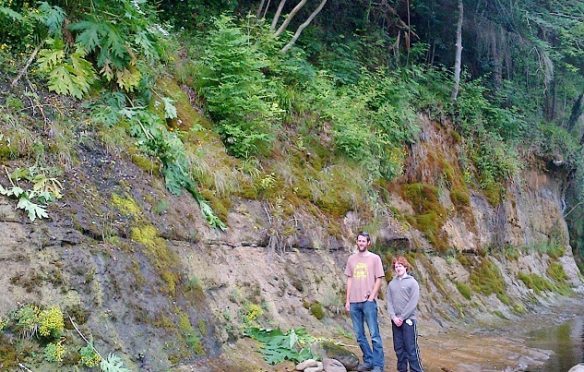A Moray community’s battle against poisonous plants which are spreading along the banks of a popular river is about to reach new heights.
Giant hogweed has sprouted by the River Findhorn, threatening local plant life and creating a risk of injury if people come into contact with it.
Now, the Findhorn, Nairn and Lossie Fisheries Trust has hired specialist contactors to scale 100ft cliffs along the expanse to wipe out patches of the toxic plants that its members cannot reach.
Yesterday, the trust said that giant hogweed had started to grow “quickly” in the last month – causing particular problems by the River Findhorn Gorge at Logie and the cliffs overlooking Broadreeds Pool at Darnaway.
Giant Hogweed grows wherever its seeds wash up – and the plants were spotted halfway up the 100ft cliffs and in a part of the gorge which is only accessible by boat.
Trust director Bob Laughton said if they are left to grow, seeds from the plants will travel further downstream and infest other riverbanks.
He and his colleagues were forced to think outside the box when it came to ridding the river of the menace growth.
Mr Laughton said: “We have had to be adventurous in thinking of how to get to these plants, so we are employing ropework specialists to abseil down the cliff to treat them.”
Rafters from the Ace Adventure outdoor activities group will spring into action at the same time, by treating the plants as they navigate the gorge.
Mr Laughton added: “That is more excitement than a fisheries biologist is used to, but a great way to see the river.”
The trust aims to carry out the scheme later this week, should the weather allow.
The plans have been arranged after the Scottish Landfill Communities Fund pledged the organisation £20,000 to help control the spread of the plants along the Findhorn and Lossie rivers.
Giant hogweed can cause serious chemical burns if touched, and activists say the plants are a hazard to the anglers and walkers who visit Moray.
Plants can grow to 10ft in height, and can produce thousands of seeds per flower head.
If plants are removed before they reach maturity, the number of seeds produced is massively reduced.
